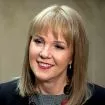Having acted as an expert witness in major commercial disputes for almost 30 years, I have been consistently shocked by how few women have been appointed as my opposing experts, despite an obviously burgeoning pipeline.
This has been a dominant reason behind co-founding the Equal Representation for Expert Witnesses (ERE) Pledge, seeking to drive, on an equal opportunity basis, an increase in the number of women appointed as expert witnesses in dispute resolution procedures worldwide.
The response has been extremely heartening since our website launched in May 2022 – more than 1,300 signatures and rising, including more than 130 organisations.
In addition, given the lack of consolidated data regarding the numbers of experts (male and female) appointed – this is not maintained by courts or Arbitral institutions – this year we took the decision to not only collect our own data, but also generate ideas to drive ERE strategy.
Our inaugural survey received more than 600 responses, with almost equal levels of participation from men and women, lawyers and expert witnesses. However, we were disappointed not to capture a sizeable number of views from in-house lawyers, particularly those who influence the make-up of their team of legal and expert representatives in any litigation and arbitration.
In our experience In-house counsel will tend to rely on their external counsel to find the right expert witness for their dispute; but external counsel told us themselves that the primary reason for fewer female than male expert witnesses being appointed was their preference to use experts they know or have used previously.
Therein lies a problem for in-house lawyers. Unless the expert witness talent pool is extensively explored, how do you know that you have the very best expert witness for your dispute (male or female)?
The ERE survey also revealed a strong pipeline of aspiring experts already experienced in drafting reports – 80% of respondents who have yet to provide oral expert evidence told us they aspire to do so in the future.
It is incumbent upon all of us who can convert this healthy pipeline, whether we are senior experts, in-house or external counsel and to bring the new generation with us. This is the only way to ensure an adequate talent pool in the future. A "number two" in an expert witness team may have many years of experience and be well equipped to fulfil the leading expert witness role; they may just need the opportunity, the right support and the trust of people like us to be an expert witness in their own right. Addressing this status quo would help turn a vicious circle into a virtuous one. These are the expert witnesses of the future!
External counsel will, of course, play critical role in making this happen. An approach where a trusted senior expert can identify an appropriate "junior" expert and provide support and oversight throughout the process mitigates risk and gives clients the benefit of two expert minds. Fee structures could also be adapted in this set-up so that clients pay less, not more.
It's vital that in-house lawyers extend their organisation's diversity initiatives to this element of their "supply chain". They must insist on their external counsel giving them diverse shortlists with a wide choice of expert witnesses and support teams to consider. They should be open to meeting aspiring expert witnesses who have the right expertise and are adequately supported and trained to take the witness box for the first time.
ERE's ultimate objective is to achieve equitable representation as soon as practically possible, with the ultimate goal of full parity. ERE as an organisation will strive to uncover more detailed views from in-house counsel in our work moving forward, but it's clear that all parties' commitment to this important cause will be vital if we are to drive significant change in the years ahead.
The content of this article is intended to provide a general guide to the subject matter. Specialist advice should be sought about your specific circumstances.

